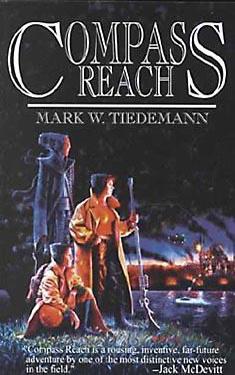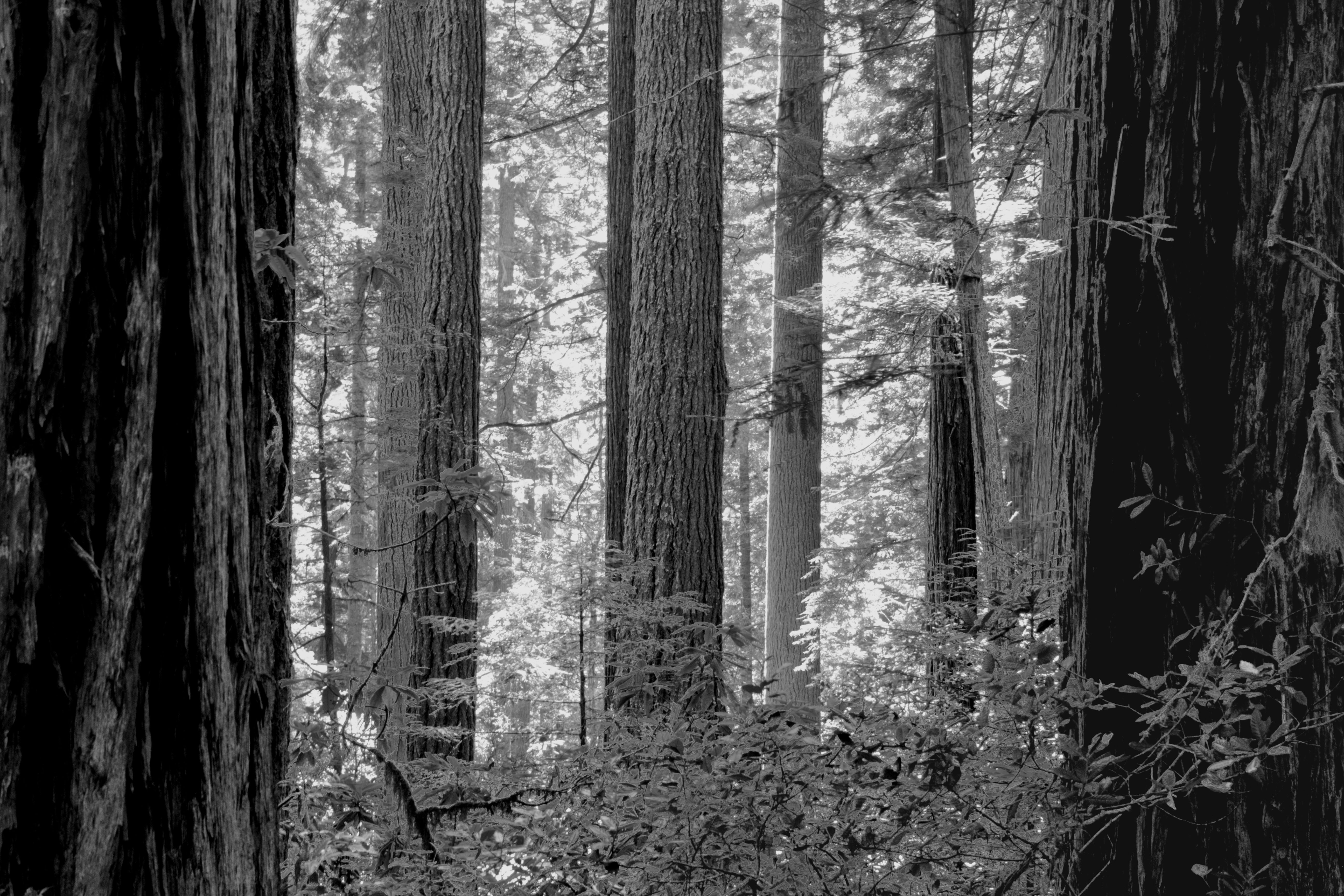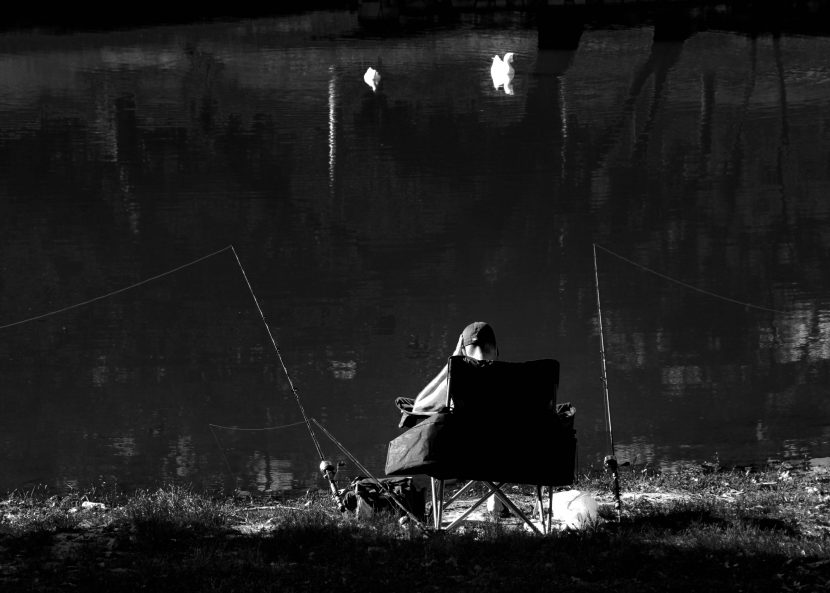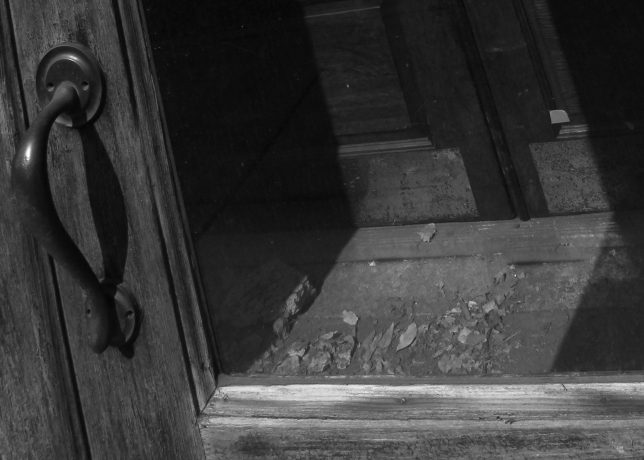…but not today. This year has been hard on keeping track of things, especially dates. Twenty years ago this past June was the release of my first novel, Compass Reach.

I missed the anniversary. Here it is, almost August (probably will be August by the time I post this) and I forgot to mark the occasion. But, better late than, as they say.
Twenty years.
That novel ran a very twisty path to publication. There was a draft of it complete before I went to Clarion in 1988. The story itself had evolved from a number of sources and ideas over the previous few years until it manifested in the (very rough) first example. So, let’s say I had it in some semblance of novel form in 1987. It was not published till 2001.
Why did it take so long?
Well, a lot has to do with not knowing how the game is played. But. Let me tell you the story of the story.
No surprise to anyone, I grew up loving science fiction, and my favorite part of it was space opera. So when I decided to write the stuff, that’s where I wanted to go. The vistas, the idea of traveling from star to star, the possibilities of all those alien worlds…no matter how practically absurd it might be, I could not get away from it. I loved it. I wanted it. Yes, a starship is a hi-tech Magic Carpet and the captain a repurposed Sinbad. Between 1981 and 1984, I developed the background for what became the Secant. In geometry, a secant is a straight line that cuts a curve in two or more parts. A metaphor, if you will, for space travel. There are other definitions having to do with angles and such and I ended up creating a logo for the series which you can find on the splash page of this website and inside the second two Secantis novels (Metal of Night and Peace and Memory). Yes, I had ambitions. I developed a scheme to write a series of novels set within this universe but few if any would share characters, what has become known as a mosaic universe. (My one exception so far is a kind of loose cannon named Sean Merrick, for reasons which predate even my first attempts at becoming a professional writer.) C.J. Cherryh did this kind of thing and I was a big fan. A great idea, I thought. Especially when you didn’t want to write a straight series with the same main characters.
I created a star map, plotted out distances, made sketches of the various settled worlds, and so forth. But I needed a story.
The thing that always piqued my curiosity about all these great space epics, even Star Trek, was—how do they pay for all that? I rarely ever found discussion of the economics of interstellar systems. It was just a given that we could build all this stuff. But the economics always felt…incomplete.
So I set myself to study economics (a little) and see if I could answer that question.
It led me to some strange places, one of which resulted in the creation of the Freeriders. Interstellar hobos, to be crude. At some point that became my focus. Then the structure of the polities involved—the Pan Humana and the Commonwealth Republic—evolved from the tension between differing ideas of what inform value and worth. In the former case, the idea of the kind of ownership that results in class systems, in the latter a kind of work-in-progress that is largely if not wholly economically egalitarian, and then all the questions around control, distribution, trade, and the reasons for Doing Things. The basic economics of interstellar civilizations. Rarely has there been a more pointed example of when to leave your research off the page.
I won’t pretend to remember each step, but at some point I started writing, and that is generally how I flesh out ideas. Dive in. I probably had a draft of Compass Reach some time in 1986. I rewrote it a time or two, then did an experiment in revision which entailed a friend who is a first-rate reader and editor spending a long weekend with us and the three of us doing marathon revisions.
That was just before I went to Clarion.
Upon returning, I took a look at the novel and decided, no, this won’t do. Structurally, it was sound, but the writing…no. Just no. But I didn’t tackle it immediately. I wrote short stories. And started selling.
My friend and colleague Nicola Griffith got her first agent somewhere around 1991. I pulled Compass Reach out of the drawer and did another rewrite and, with an introduction, sent it to her agent. She in turn requested a revision. When I completed it, I sent it back, and our next couple of interactions showed me I could not work with her.
I did one more revision and then went hunting agents. I signed to Writers House around 1995, based mainly on my short fiction. By then I had written Metal of Night and was most of the way through Peace & Memory. The universe was feeling very real by then. I made sketches for a couple more novels and had begun writing short stories set in the Secant.
I thought I had sold the trilogy to White Wolf. Well, I had. I’d even been paid. But they melted down and handed the three books back to me in 1998. In the meantime, Writers House got me the contract to do the three Asimov novels I wrote. It was a rocky deal, but I was desperate at that point to publish a novel, any novel. I felt I was working at a disadvantage because all I’d published to date was short fiction, and I was beginning to realize that publishing had changed and that a track record in short fiction was becoming less and less relevant to then publishing a novel.
A few things happened over the course of a year or so. I nailed down the first robot novel, I lost my agent, started a new job, and then was approached by a small press about the Secantis Sequence. Meisha Merlin finally took the three novels then completed.
Worldcon 2000 was in Chicago. I met the art director for Meisha Merlin, who asked me what I wanted to see on the cover. That night in our hotel room, I sketched a concept. Originally, there were five people in the picture, but I was asked if they could get away with three. (Apparently the price goes up per additional person.) What became the cover for Compass Reach is pretty much what I drew.
I signed with a new agent, Virginia Kidd.
I thought I was on my way.
It’s easy to complain about the disappointments in publishing, but it’s also boring. Except for some colleagues, no one really cares. Meisha Merlin published the three novels and then went out of business. The books were essentially cast adrift. There is a fourth completed novel and we were making plans to publish all the short stories in a single volume. I had—have—plans to write a direct sequel to Peace & Memory. Other books have dragged me from the Secant.
Twenty years ago, though, I saw my first novel out in the wild. It is an impossible feeling to describe. I was graced with a wonderful introduction by Nicola Griffith (Jack McDevitt and James Morrow did intros for the next two respectively) and the damn thing got shortlisted for the Phillip K. Dick Award. It was a high point in my career.
I would love to find a publisher to reissue them and possibly entertain the idea of publishing new ones. It probably wouldn’t be too difficult to get back into it. In fact, I have a novella forthcoming from Analog set in the Secant. It’s a great place to set stories, although I’ve written fewer of them than I thought I would.
Twenty years.
_________________________________________________________________
Copies of all three Secantis novels are available from Left Bank Books. Â You can, if you request it, get signed copies.






